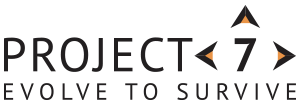Our client, Airbus, is the largest aeronautics and space organisation in Europe. As a global leader in manufacturing aircraft, the company is home to the most modern and comprehensive aircraft family in the world.
As part of a funding initiative facilitated by AIDT Workforce Development, funded by the Alabama State; Airbus US Final Assembly Line [FAL] approached Project7 [P7] with a major change programme concerning their workforce performance culture. Having previously worked with P7 on a successful project in Canada; a trusted relationship had already been established with the client.
The recently appointed General Manager, of a brand new Final Assembly Line facility in Alabama, was confronted with several issues. The facility was facing the challenging transition from a facility build phase, constructing two aircrafts per month to test capacity, to a fully operating Final Assembly Line producing four aircrafts per month – whilst losing the temporary expat expertise provided from Europe, and without significantly increasing employee numbers.
This change programme was essential, in order to maintain the Airbus Strategy to;
- Increase US market sector growth
- Meet committed increase in production volumes
The key challenges for Airbus, Alabama included;
Transition from experienced European Airbus employees to new, inexperienced US employees
- Airbus Operating System; the manufacturing maturity assessment level of deployment was
assessed at scoring D with a target condition of A. - A recent Employee Engagement Survey revealed 60% of base-level employees rated Leadership
as either Average or Poor. - 40-50% of the planned workload was being moved [travelled work] to the next workstation for
completion; instead of being completed at one workstation.
Our Client desperately needed to address Leadership issues, relating to both employee and material management within the workstation. Currently, the facility was working in ad-hoc ways to achieve final assembly of aircraft build; neglecting the formalised systematic approach – vital in organising materials, tooling, processes and people.
Although Senior Management were aware of the systematic methodologies, they were not being utilised or deployed – impacting all levels of the workforce. This left front line, value-adding employees without the necessary knowledge and awareness; which would be key in establishing a high-performance culture.
A reduction in out of station travelled work was also crucial, in order to cut costs and gain improved performance levels.
In order to overcome these key challenges, P7 were assigned with designing, implementing and evaluating a world class operating system through 4 levels of the Airbus, Alabama organisation.
This Solution would enable the effective delivery of aircraft; meeting quality, schedule, cost and safety – every time, in turn creating a high-performing culture.
P7’s Solution consisted of the seven steps of the P7 Way:
- Strategy into Action
- Tiered Visual Performance Management [VPM]
- Short Interval Control & Performance Dialogues
- Performance Confirmation & Go Look See
- Setting Clear & Aligned Targets; Problem-solving Level 1
- Coaching for Success; Problem-solving Level 2
- Talent Management and Leadership Development
Having carefully adapted these seven steps to the Airbus Operating System; the P7 Way was closely aligned with Airbus’ core principals in mind. This naturally fuelled the success of the implementations; providing the necessary focus to meet and go beyond the required standards. In order to unravel the complex structure of the diverse and highly technical organisation, P7 incorporated two additional tools/techniques into the working environment, including the RACI Diagram and ICOR Chart. This facilitated a significant breakthrough in the project’s success and enabled improvements in the identification of employee roles, tasks and timescales; further supporting the project’s implementations.
Despite the success of the project’s implementations, P7 recognised an over-estimation in the local knowledge of the new workforce in the Airbus Operating System standards. With hindsight, slowing down the pace of the implementations, extending the length of the project or employing extra team members may have helped further boost improvements.
As a result of the coaching and implementations deployed by P7; Airbus US FAL have achieved:
4 levels of tiered Visual Performance Management [VPM] fully integrated into Airbus daily
governance processes creating a World Class Operating System.
- 40% reduction in Travelled Work from station to station – enabling the first ever clean aircraft build within workstation.
- An increase from D to B in the Airbus Operating System Maturity Assessment [Six categories move to B and two to A].
- A positive swing in the Employee Leadership survey results on Leadership; moving from 60% below average rating, to 60% above average rating.
- $2.4 billion in annual sales by moving from two aircraft delivered per month to four aircraft delivered per month.

